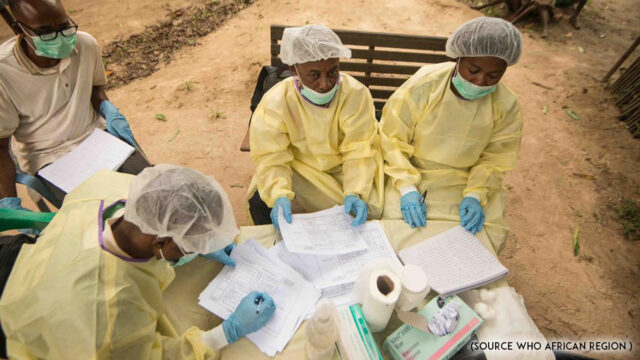On 18th November 2020 DRC declared their eleventh outbreak of Ebola after lasting for nearly six months and infecting 130 people. The outbreak claimed the lives of 55 people and spread within the country’s northwest, in Équateur province, in often remote and very difficult-to-access villages. The eleventh Ebola outbreak in DRC since records began was declared on 1 June 2020, following the revelation of the latest cases of Ebola in Équateur province, within the country’s northwest. but two years since the last outbreak, DRC’s ninth, of the disease led to Équateur province – and just weeks before the country declared over its long-running tenth outbreak, in North Kivu and Ituri provinces – authorities reported over a dozen people with either confirmed or suspected cases within the city of Mbandaka and surrounding area. The period for Ebola is 21 days. This is often the amount of exposure to the event of clinical symptoms. The outbreak can only be considered over when no new cases are diagnosed 42 days (double the incubation period) after the last reported case has tested negative.
Three hundred thousand people are vaccinated with the recently FDA-licensed Merck EVERBO vaccine and another 20,000 with the Janzen vaccine, despite enormous logistical and regulatory challenges. Investigational therapeutics for confirmed Ebola virus disease (EVD) cases were provided to just about all confirmed patients either through a compassionate use protocol or as a part of a randomized controlled trial, with two of the four therapeutics identified as efficacious2 and moved forward to a two-arm trial. Controversial public health interventions that severely disrupted peoples’ lives within the West African outbreak, including quarantine, school closures, and prevention of mass gatherings, haven’t been implemented within the North Kivu outbreak, leading to less severe disruption to social lives and livelihoods. Finally, compared to previous Ebola outbreaks, there has been a big improvement within the institutionalization of science data and research during this response, allowing the outbreak response to pay better heed to community feedback and wishes.









